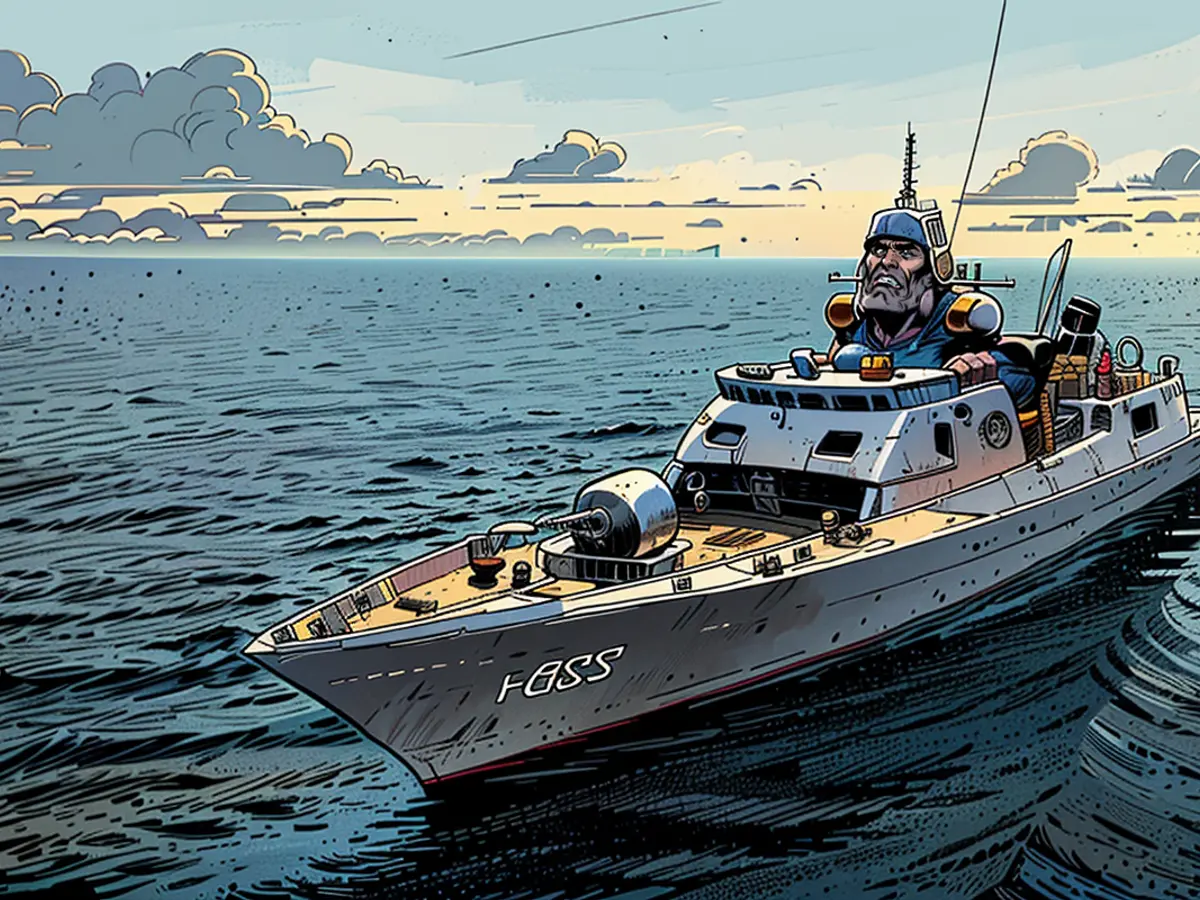Dutch warship confronted by Chinese military while enforcing UN sanctions on North Korea, reports Netherlands.
The Dutch Defense Ministry claimed on Friday that two Chinese fighter jets flew around their frigate, HNLMS Tromp, multiple times, while one of their marine patrol helicopters was approached by two Chinese warplanes and a helicopter during a patrol in the East China Sea. The statement mentioned the events created a "potentially unsafe situation." The Netherlands has asked China for comment on the accusations. The Tromp was stationed in the East China Sea to support a multinational coalition enforcing UN sanctions on North Korea, called the Pacific Security Maritime Exchange (PSMX). The sanctions are a result of North Korea's nuclear weapons program. PSMX consists of Australia, Canada, France, Germany, Japan, New Zealand, South Korea, the United Kingdom, and the United States. Prior to the patrol in the East China Sea, the Dutch frigate made a port call in Busan, South Korea, where it practised manoeuvres with the South Korean Navy. This is not the first time vessels and aircraft have accused China's People's Liberation Army of executing possibly harmful maneuvers in the East China and South China Seas and beyond. Last month, Australia claimed a Chinese fighter jet fired flares towards a naval helicopter operating from the destroyer HMAS Hobart, again over international waters in the Yellow Sea. The Hobart also enforced UN restrictions on North Korea. Australia called it an "unsafe maneuver" that could be hazardous to the aircraft and its personnel. China defended that action by its military but rejected Australia's characterisation that the interception was threatening. The Chinese Foreign Ministry spokesperson Lin Jian stated that Australian warships and planes "deliberately approached China’s airspace" to stir issues, therefore stirring danger to China's maritime and air safety. China claimed its military "took necessary measures" at the scene. Further back in October, Canada stated a Chinese fighter jet fired flares at a Canadian military helicopter in the South China Sea, with Canada characterizing it as "unsafe and non-standard." Maj. Rob Millen, Canadian air officer, said the risk to a helicopter in that case was the flares "moving into the rotor blades or the engines" placing it in that category of "both unsafe and unprofessional." China denied the allegations and accused Canada of engaging in a "malicious and provocative act with ulterior motives." About two weeks prior to the South China Sea incident, a Royal Canadian Air Force patrol plane reported an unsafe intercept by a Chinese jet while it was supporting the UN enforcement of sanctions on North Korea. China often asserts that their forces abide by international law while defending Chinese interests. Earlier this month, at the Shangri-La Dialogue defense summit in Singapore, US Defense Secretary Lloyd Austin said Washington made "substantial improvement" in developing alliances and partnerships in Asia in the past three years. A Chinese colonel questioned Austin if the US plans to build a NATO-like alliance system in the Asia-Pacific region, accusing NATO of causing the Ukraine conflict. Hours later, Chinese military spokesperson Jing Jianfeng said the US was "creating chaos and has become the source of risks, as well as the destroyer for stability in the Asia-Pacific Region." Japan said it experienced six incidents of potentially dangerous Chinese military manoeuvres in the East China Sea during a single month. Likewise, Taiwan claims Chinese jets have intruded into Taiwan's airspace during patrols, while Australian authorities reported a significant increase in unsafe military overflights by China. In May, the Chinese army staged drills with advanced weapons and fighter jets and bombers near Taiwan.

Read also:
The Dutch frigate, HNLMS Tromp, was stationed in the East China Sea to enforce UN sanctions on North Korea as part of the Pacific Security Maritime Exchange (PSMX), which includes several Asian and Western countries. These sanctions are a response to North Korea's nuclear weapons program, and PSMX has members from Asia, such as Japan, and the rest of the world, including the United States.







